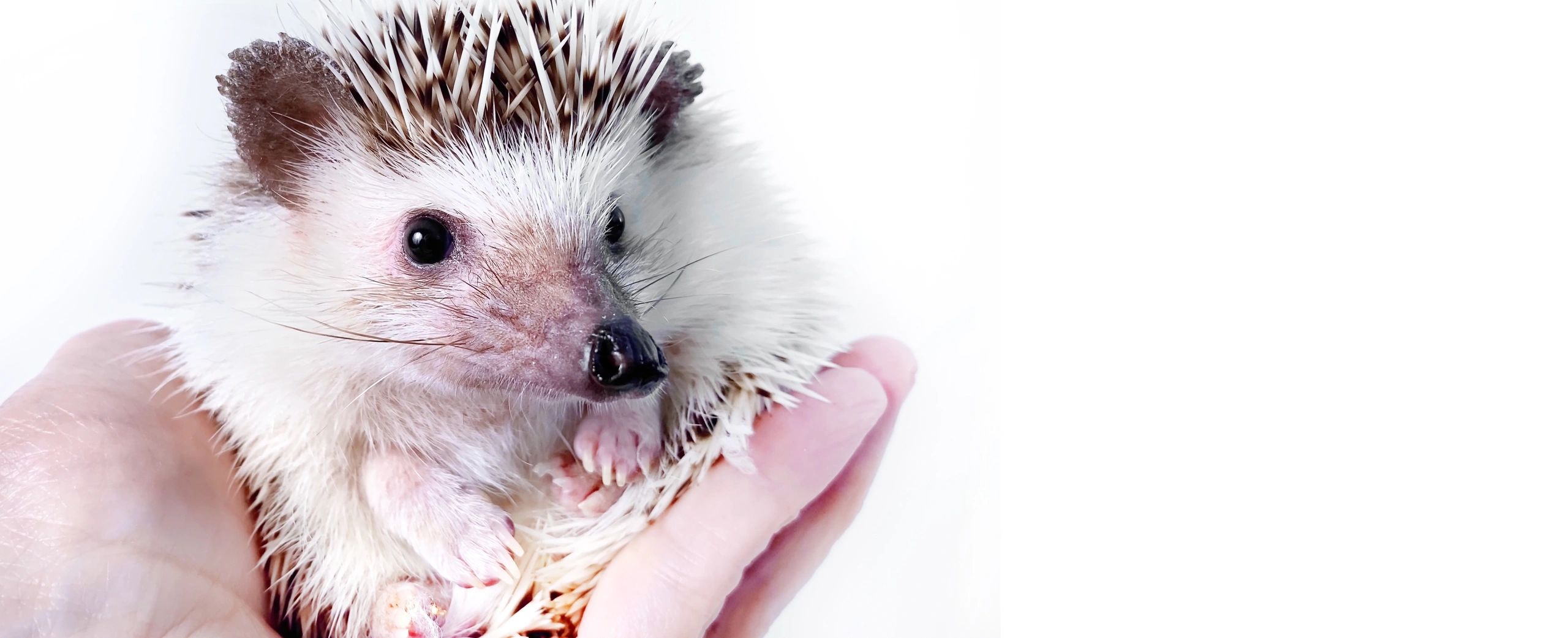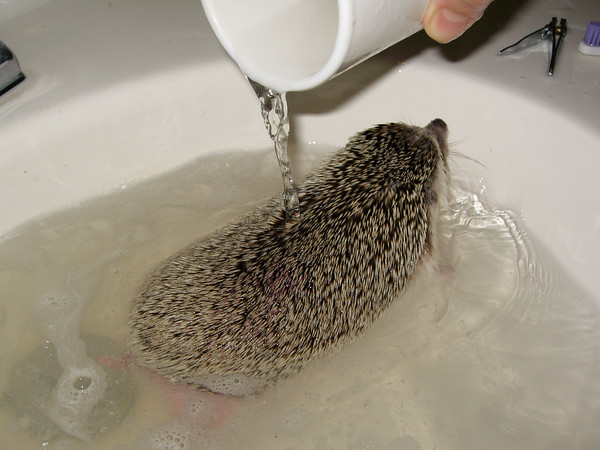
Hedgehog Health and Wellness
Keeping Your Hedgehog Happy and Healthy
Common Health Issues
African Pygmy Hedgehogs can face various health issues, such as mites, obesity, and respiratory infections. Regular check-ups with a vet experienced in exotic pets are essential. Keep an eye out for signs of illness, such as lethargy or unusual behavior.
African Pygmy Hedgehog Enclosure Cleaning Guide
Maintaining a clean enclosure for your African pygmy hedgehog is essential for their health and wellbeing. Regular cleaning not only ensures a hygienic environment but also promotes comfort, prevents health issues, and allows for better observation of your pet. Here’s a breakdown of why cleaning is so important:
1. Hygiene
Frequent cleaning helps to maintain a fresh and hygienic environment, preventing unpleasant odors and discouraging pests. Failure to clean regularly can lead to bacterial or fungal growth, which can cause infections or other health problems.
2. Health
A clean enclosure is vital for preventing the build-up of harmful bacteria, parasites, and pathogens that could compromise your hedgehog’s health. By removing waste and cleaning surfaces thoroughly, you significantly reduce the risk of illnesses, promoting a healthier life for both your pet and yourself.
3. Comfort
A clean environment provides your hedgehog with a comfortable, stress-free living space. Fresh bedding, free of soiled material and food debris, ensures a safe and cozy area where your hedgehog can thrive. Cleanliness is crucial in preventing skin irritations, respiratory issues, or other discomforts.
4. Observation
Regular cleaning gives you the perfect opportunity to observe your hedgehog closely and monitor their behavior, appetite, and overall health. It allows you to identify any signs of illness or abnormalities early on, helping you address potential issues before they become serious.
5. Legal Requirement
Cleaning your hedgehog’s enclosure is not just a matter of comfort and health; it’s also a legal obligation. Under the Animal Welfare Act 2006, you must meet the five animal needs, which include providing a clean living environment for your pet. Failing to do so could lead to welfare concerns and potential legal consequences.

Cleaning Tips:
- Spot Clean: Remove waste and uneaten food daily to prevent any accumulation of debris.
- Full Clean: Perform a full clean once a week. Remove all bedding, wash the enclosure with pet-safe disinfectant, and replace the bedding with fresh materials.
- Check for Health Signs: During each cleaning session, take the time to check for any signs of injury, illness, or unusual behavior.
By ensuring your hedgehog’s environment is consistently clean, you’re contributing to their overall happiness and health.
Litter Training Your African Pygmy Hedgehog
Litter training an African Pygmy Hedgehog (APH) is a straightforward process, though it requires patience. I use a corner litter tray filled with wooden cat pellets, which is ideal for absorbing moisture and controlling odors. Here’s how to successfully litter train your hedgehog:
- Training Method: To start, pick up your hedgehog’s feces and place it in the litter tray. Over time, your hedgehog will associate the scent with the litter tray and begin to use it consistently.
- Additional Considerations: Even with litter training, most hedgehogs still tend to use their exercise wheel as a bathroom, so it’s essential to place a tray underneath the wheel to catch any waste.
- Personal Experience: In my experience, female hedgehogs tend to be easier to litter train than males.

Bathing Your African Pygmy Hedgehog
Bathing your hedgehog is a wonderful way to keep them clean and healthy. A gentle bath once or twice a month can help maintain their skin and spines. Here’s how to bathe your hedgehog effectively:
- Water Temperature & Level: Use lukewarm water, filling the bath only up to your hedgehog’s stomach, allowing them to walk around comfortably. I recommend using a slip-proof mat in the bottom of the bath to help them maintain a good grip.
- Cleaning: Gently pour water over your hedgehog’s spines using a cup or jug. You can use your hands or a soft toothbrush to gently rub a baby-friendly body wash, such as Aveeno Baby Bath, into their skin. Hedgehogs have sensitive skin, so always choose a gentle, non-irritating cleanser.
- Rinsing & Drying: After washing, rinse the body thoroughly to remove any soap residue. Keep your hedgehog in a towel or a warm area to dry off, ensuring they are not exposed to drafts. Once damp, return them to their enclosure in a comfortable, warm environment.
- Nail Trimming: Many hedgehog owners find it easier to trim their pet’s nails during the bath, as they tend to remain relaxed and not curl up.
- Bathing Frequency: While baths are essential for maintaining cleanliness, avoid over-bathing your hedgehog, as it can lead to dry, itchy skin. If this happens, a coconut oil bath may help moisturize and soothe the skin.

Common Hedgehog Illnesses and Health Concerns
Hedgehogs, like all pets, can be prone to certain health issues. Being aware of common conditions and their symptoms can help you identify potential problems early. Some of the most common hedgehog health concerns include internal and external parasites, ringworm, cancer, pneumonia, obesity, and Wobbly Hedgehog Syndrome (WHS).
Signs of an Unwell Hedgehog
Watch for these signs, which may indicate your hedgehog is unwell:
- Wobbly Hedgehog Syndrome (WHS): A neurological condition causing a loss of coordination.
- Obvious Injury: Visible wounds or signs of trauma.
- Change in Appetite: A significant increase or decrease in food intake.
- Diarrhea or Green Stool: May indicate internal parasites or digestive issues.
- Excessive Quill Loss: Can be a sign of parasitic infection or stress.
- Nasal Discharge: Could signal respiratory infection or pneumonia.
Internal Parasites
Internal parasites are common in hedgehogs and can lead to symptoms such as diarrhea. A fecal examination by a vet is needed for diagnosis. Treatment typically involves antiparasitic drugs, which work by paralyzing or killing the parasites and their eggs.
External Parasites
Hedgehogs can also suffer from external parasites, which may cause excessive quill loss, flaky skin, and crusts at the base of spines. Signs include lethargy and the visible presence of fleas or mites. While hedgehogs don’t require the same treatments as dogs or cats, a regular bath (1-2 times per month) can help manage these external issues and keep your pet comfortable.
Obesity
Obesity is a common issue in hedgehogs, often caused by overfeeding or lack of exercise. Signs include an enlarged belly, difficulty moving, and lethargy. To prevent obesity, ensure your hedgehog has:
- Regular veterinary check-ups.
- A clean and suitable environment.
- A balanced diet with controlled portions.
- Access to fresh water.
- Plenty of exercise, both physical and mental stimulation.
- A stress-free living space.
Wobbly Hedgehog Syndrome (WHS)
WHS is a neurological condition believed to be genetic, affecting nearly 10% of hedgehogs due to limited bloodlines. It causes progressive loss of coordination and balance. Although there is no cure, supportive care and symptom management are important.
Dental Health
Hedgehogs can develop plaque on their teeth, made up of saliva, food particles, and bacteria. Over time, plaque can lead to dental problems, making the teeth unhealthy and affecting the gums. Senior hedgehogs are particularly susceptible to brittle teeth, so it’s important to provide a diet that promotes healthy teeth. Regular dental care is recommended for hedgehogs in their later years.
Spaying/Neutering
Spaying or neutering your hedgehog can help prevent tumors or reproductive diseases later in life. It’s a preventive measure that can improve their overall health and longevity.
Health Check Checklist
When performing a health check on your hedgehog, look for:
- Missing Spines: Any patches of quill loss could be a sign of illness or stress.
- Healthy Skin: No redness, irritation, or dryness.
- Clear, Bright Eyes: Cloudy or red eyes may indicate infection.
- Moist Nose: A dry nose could be a sign of dehydration.
- Clear Ears: No discharge or excessive wax buildup.
- Good Body Condition: A healthy weight and body shape.
- Normal Behavior: Active, alert, and engaged.
- No Wheezing or Coughing: Indicates respiratory health.
- Normal Temperature: Hedgehogs should have a body temperature of 35–37°C (95–98.6°F).
